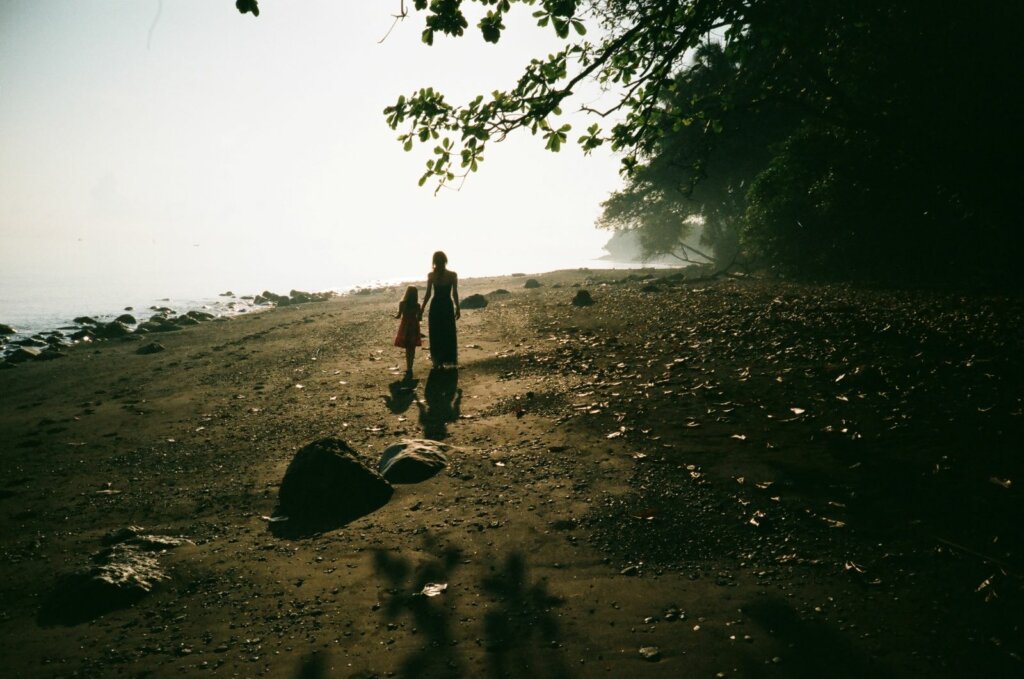I learned or relearned something recently about mothers and grandmothers. All the eggs a woman will ever carry form in her ovaries when she’s a four-month-old fetus, which means we spend approximately five months in our grandmother’s womb. It also means our grandmother was formed in the womb of her grandmother.
As Layne Redmond says, “We vibrate to the rhythms of our mother’s blood before she herself is born. And this pulse is the thread of blood that runs all the way back through the grandmothers to the first mother.”
That’s pretty cool when you think about it. Because of how eggs are formed, there’s a chain that stretches far, far back, and connects us to our ancestors in a very real way. We have shared DNA and inherit traits such as eye color and height but we are also connected through the act of being there with them in the womb.

Our grandmothers carried us and now we carry them. Photo by Anton Luzhkovsky on Unsplash
As someone who didn’t know either of her grandmothers very well, this brings me comfort. I may not be able to tell a story about baking cookies with my maternal grandmother or her surprising me with a locket when I graduated from high school, but I am still connected to her. I am linked to her as I was in her womb receiving imprints, vibrations, and memories from the very beginning of my life. That may sound strange. How can an egg receive imprints and memories? But that’s exactly what epigenetics is.
Epigenetics is the study of how behaviors and an environment can change how genes work. Epigenetics change how your body reads a DNA sequence. For instance, rat studies demonstrated that exposure to THC (the active compound in cannabis) during adolescence can prime future offspring to display signs of predisposition to heroin addiction. In a human example, studies of humans whose ancestors survived periods of starvation in Sweden and the Netherlands suggest the effects of famine on epigenetics and health can pass through at least three generations. Nutrient deprivation in a recent ancestor seems to prime the body for diabetes and cardiovascular problems.
We like to pretend we live in a vacuum and are solely responsible for our lives or go to the other extreme and say everything is genetic. Neither is true – we are responsible for our lives and the choices we make affect our genes and the genes of our descendants, for better or worse. No one is perfect and I’m not interested in shaming anyone. Instead, on this Mother’s Day, I’m honoring not only my own mother but her mother and her mother and her mother and so on all the way back. I am connected to them and they are connected to me.
I am grateful for my ancestors, for the traits and skills they passed down, and as a descendant, I’m saying, “Thank you. I see you. I appreciate you. You’re not forgotten even if I don’t know your name. I carry you with me just as you carried me.” May we all be able to say that about our ancestors and our descendants, if we have any. And may we be able to say “Happy Mother’s Day” to someone in our family even if it’s not to our own mother directly.
I dream of a world where we understand just how connected we are. A world where we remember that we were with our grandmothers from the very beginning of life just as they were with theirs. A world where we understand there is a chain linking us all the way back to the first mother.
Another world is not only possible, it’s probable.


